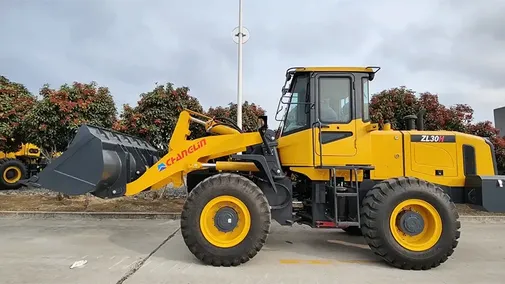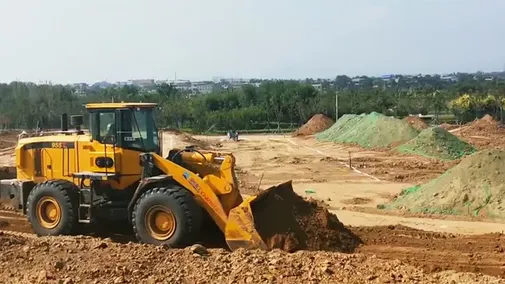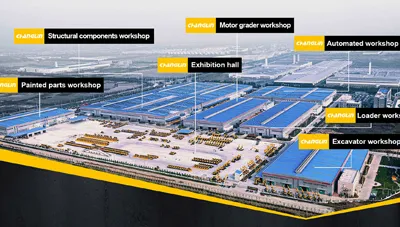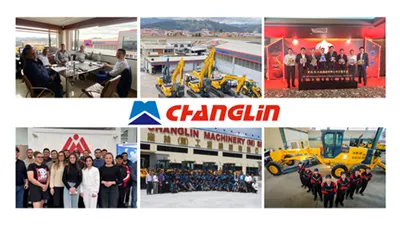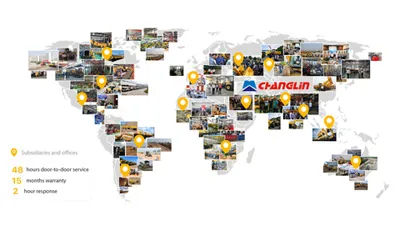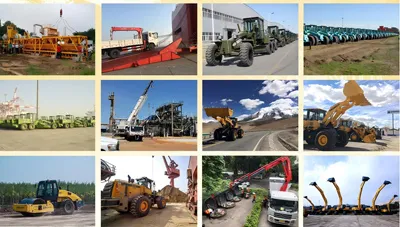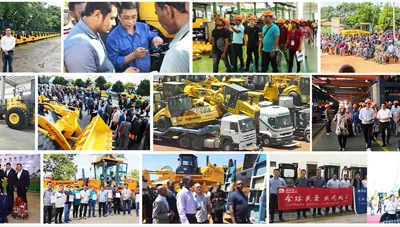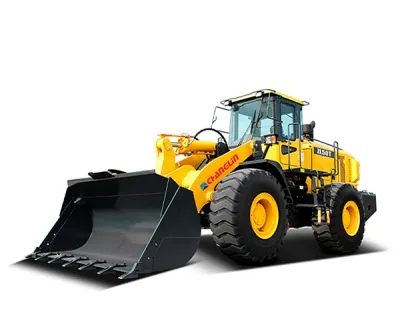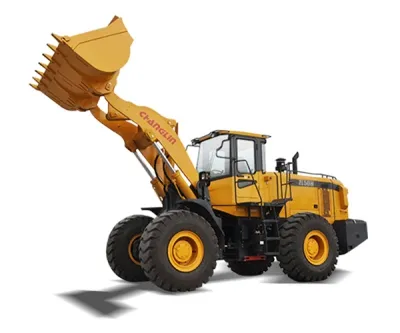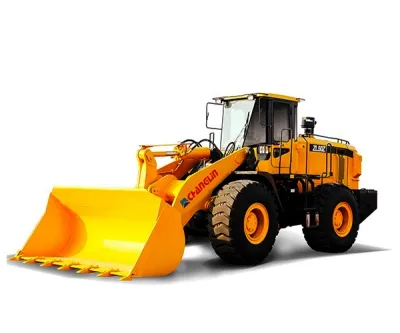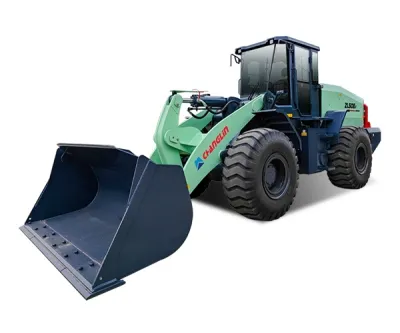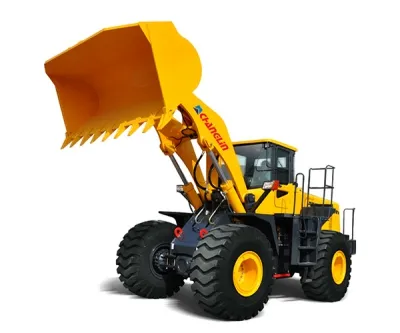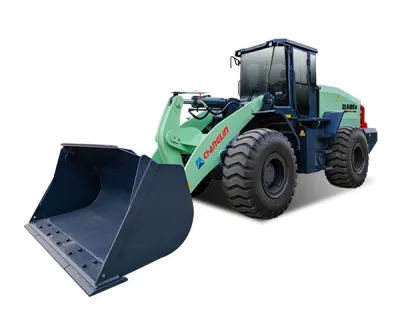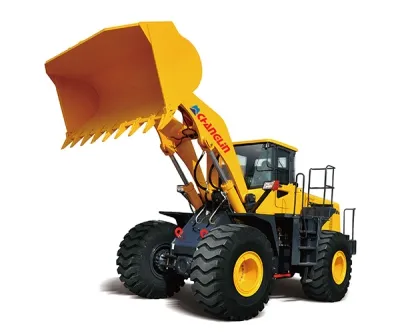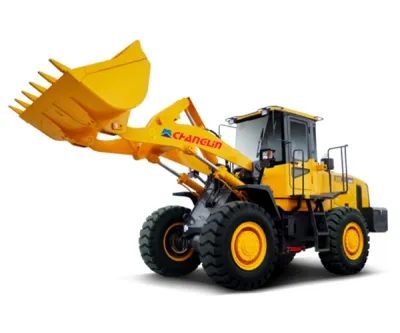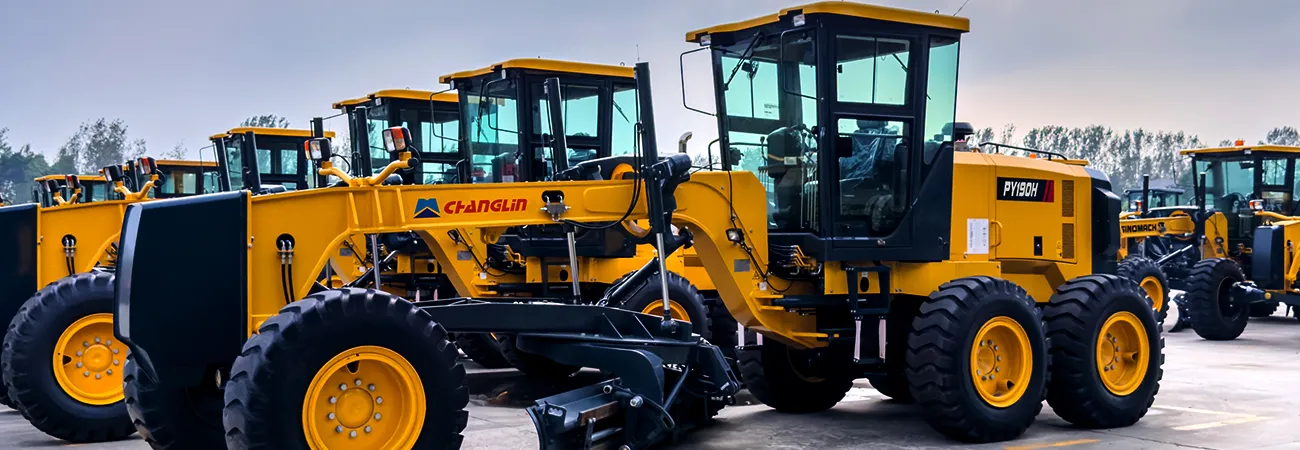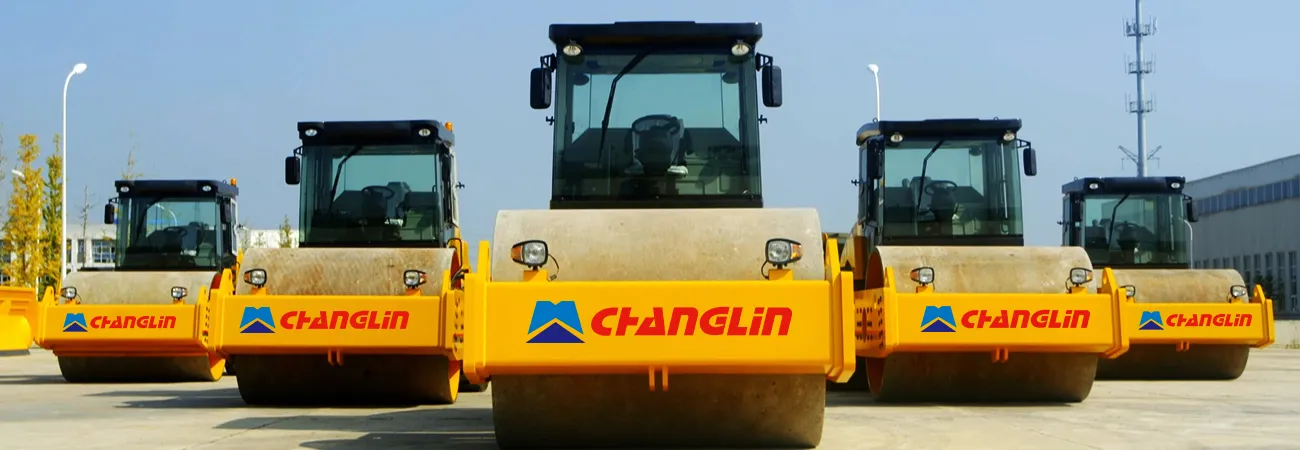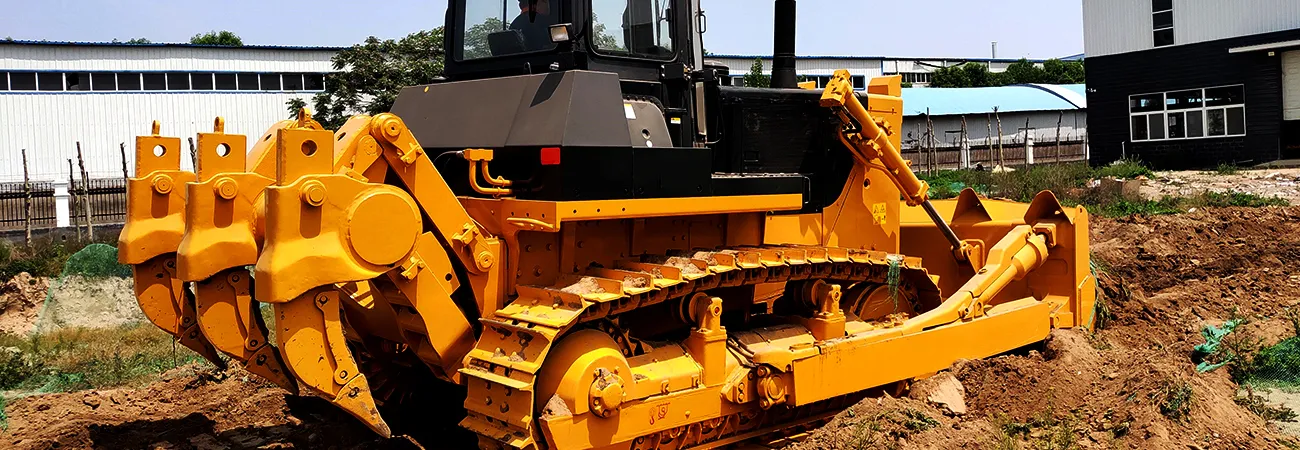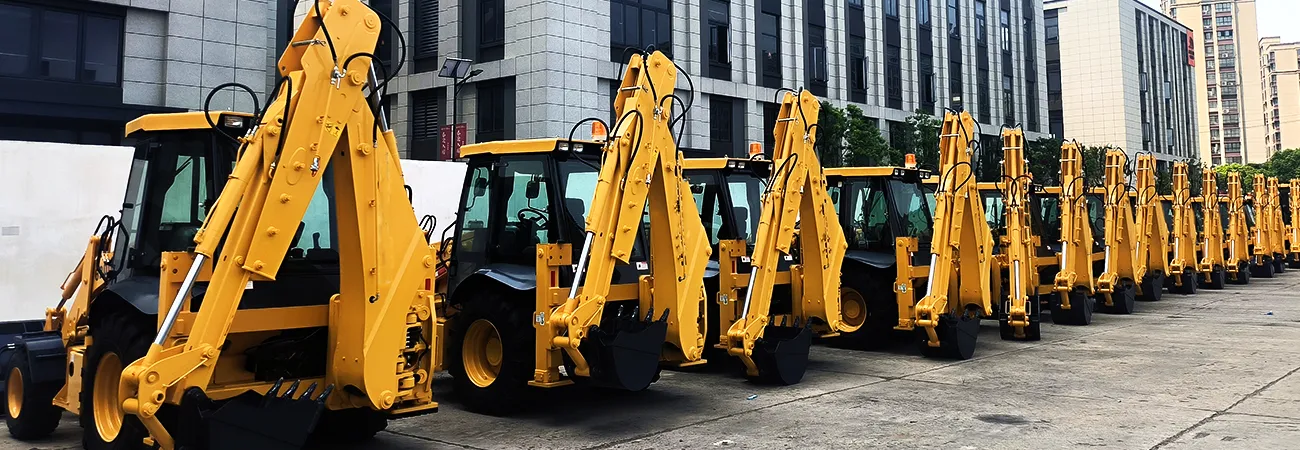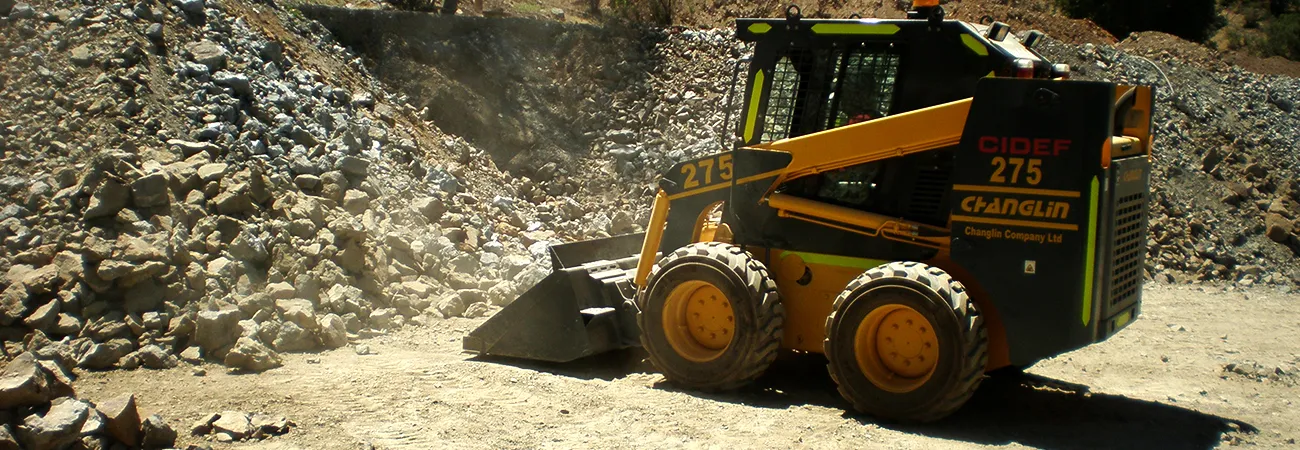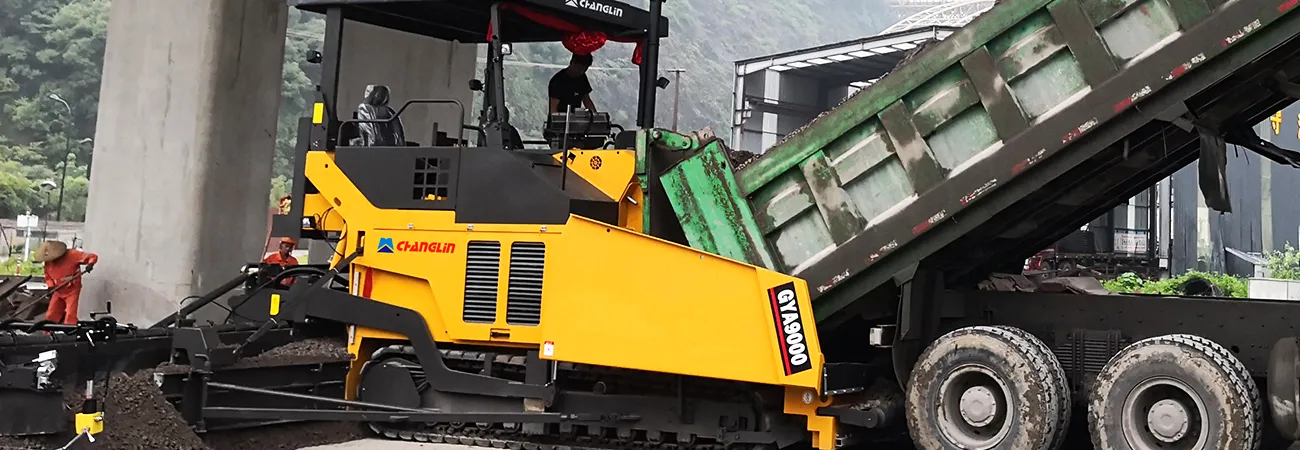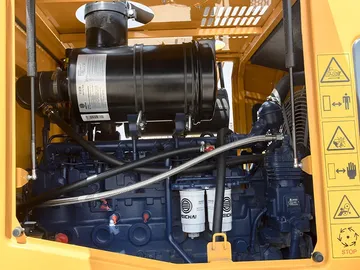
Equipped with a Dongfeng Cummins engine, this wheel loader delivers 97 kW of rated power and up to 440N.m of torque, offering the strength needed for intensive operations across challenging environments.
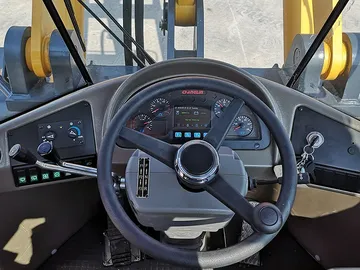
Its BS428DX2 power-shift transmission features four forward and two reverse gears, supporting a maximum traction force of 96 kN. This allows smooth, responsive performance and reliable handling even under tough working conditions.
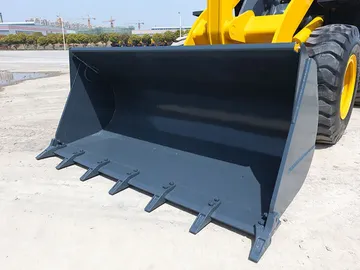
Standard configuration includes a 1.7 m³ bucket, with optional attachments available from 1.4 to 3.2 m³ depending on job requirements. With a maximum dumping height of 2934 mm and a reach of 1043 mm, it covers a wide working range and enhances operational efficiency.
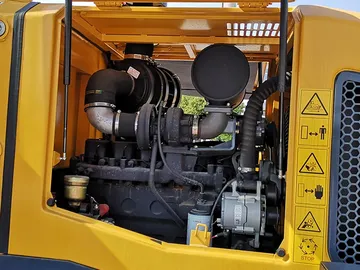
The hydraulic system combines a CBGj2100 pump and a YGDF-25-YL16 multi-way valve, providing system pressure up to 16 MPa. This ensures precise control and smooth coordination of combined movements, even when handling variable tasks.
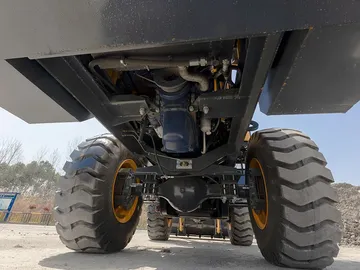
Equipped with reinforced tires to improve traction and overall stability, while a minimum ground clearance of 360 mm enhances off-road adaptability, making it a dependable choice for rough and uneven terrains.
Overall Dimensions
- Length (with bucket on ground) 6983mm
- Width (to outside of wheels) 2305mm
- Bucket width 2430mm
- Height (to the top of the cab) 3136mm
- Wheel base 2750mm
- Min. ground clearance 360mm
Performance
- Rated load 3000kg
- Operating weight 10200kg
- Rated bucket capacity 1.7m³, (optional 1.4-3.2 m³)
- Max. dump clearance 2934mm
- Dump reach 1043mm
- Min. turning radius (wheel) 5185mm
Diesel Engine
- Model Dongfeng Cummins
- Type Direct injection
- Rated output 97kW
- Displacement 5.9L
- Rated speed 2200r/min
- Max. torque 440N.m@1500rpm
SINOMACH has developed a global footprint, with marketing and service systems covering over 100 countries and regions.
Subsidiaries in West Africa, India, and South Africa, a joint venture in Malaysia, with offices in Mexico, Argentina, and the Philippines.
Supplied large-scale turnkey equipment packages including excavators, loaders, bulldozers, rollers, and graders for major infrastructure projects in Africa, mining operations in South America and the CIS, highways in West Africa, and engineering projects across Central Asia.


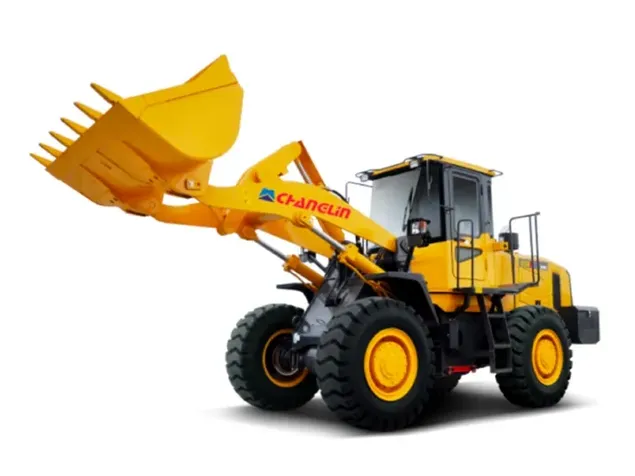






 Length (with bucket on ground) 6983 mm
Length (with bucket on ground) 6983 mm  Operating weight 10200 kg
Operating weight 10200 kg  Rated bucket capacity 1.7 m³
Rated bucket capacity 1.7 m³ Rated output 97 kW
Rated output 97 kW